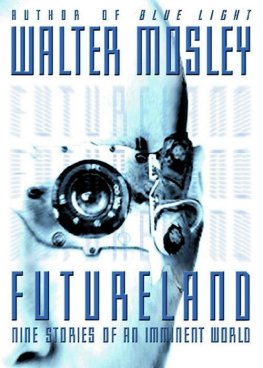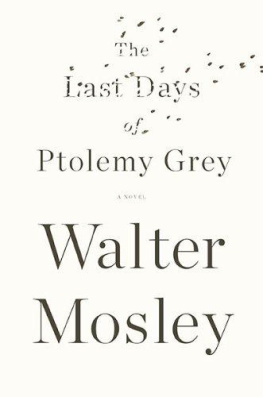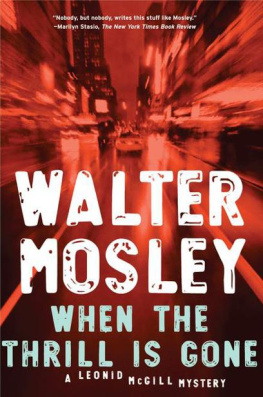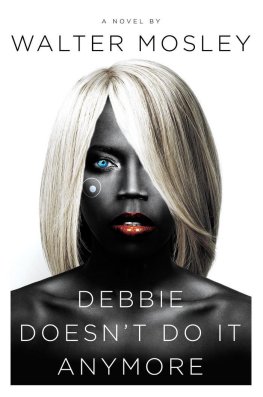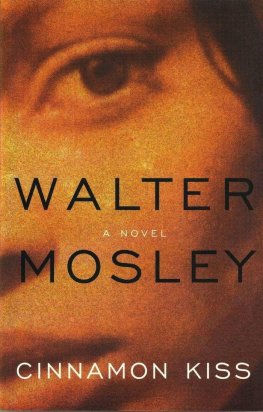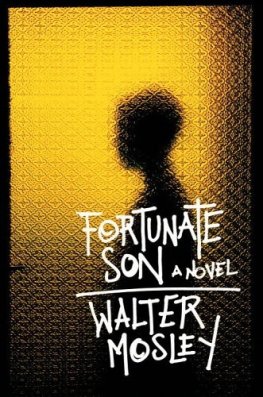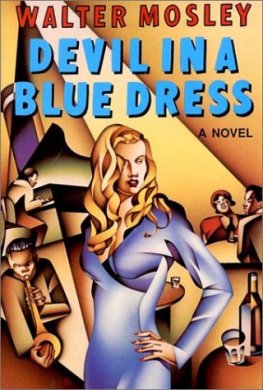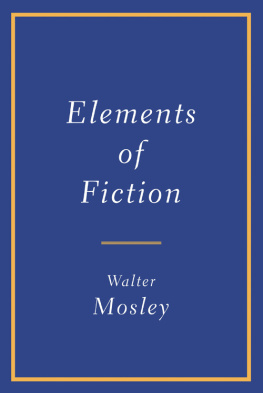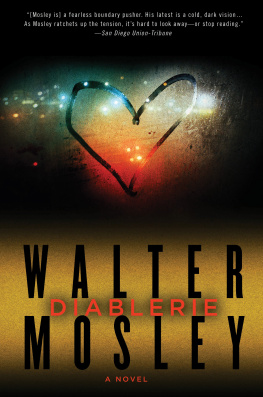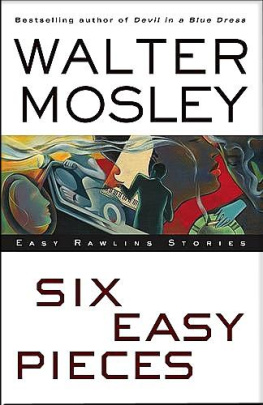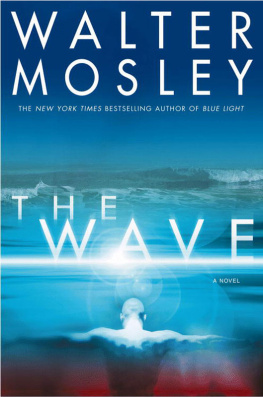What Next
A Memoir Toward World Peace
What Next
A Memoir Toward World Peace
Walter Mosley
What Next:
A Memoir Toward World Peace
Walter Mosley
First published 2003
Published by Black Classic Press 2003, 2013
All Rights Reserved.
Print ISBN: 978-1-57478-020-8
e-book ISBN: 978-1-57478-089-5
Black Classic Press specializes in publishing popular and academic works by and about people of African descent and is one of the oldest independently owned Black publishers in operation in the United States.
www.blackclassicbooks.com
This book is dedicated to Haki Madhubuti, poet, educator, activist, father, and man.
America is the architect of globalization, but Americans are not global.
- Manthia Diawara
Prefatory Note
E veryone is invited to read this book. But before you begin, you should know that it has been written specifically as an address to African America. It is a reflection on our history and subsequently upon our futureespecially with regard to the current war that the United States has entered.
Because of the unique history and daily experiences of African American people. I believe that we have a singular perspective on the qualities of revenge, security, and peace that will positively inform the direction of our nations sometimes ill-considered stands. It is, I believe. important to air certain ideas and insights that arise from that African American experience as they relate to our enemies and our friends.
Part One
A Fathers Story
W hen I was eight, I asked my father if he was afraid to go off and fight in World War II. He said, No, honey. I wasnt afraid. You see, I knew that the Germans were fighting the Americans, but I didnt know that I was an American.
Why not? I asked,
Nobody thought that Negroes were Americans where I was raised, he said. We couldnt vote, we had no rights that couldnt be taken away by white people, and most of us believed that we werent really equal to whites. So I thought that the Germans would just pass me by looking for their American enemies.
Did they? I asked, and my father laughed. I always loved it when my father laughed. Humor in our house was both strength and knowledge.
No, he said. Those Germans wanted to kill me just as much they wanted to kill every other foreign soldier. As a matter of fact, them shooting at me was what made me realize that I really was an American. Thats why, when I was discharged, I left the South and came here to Los Angeles. Because I couldnt live among people who didnt know or couldnt accept what I had become in danger and under fire in the war.
My father always taught by telling stories about his experiences. His lessons were about morality and art and what insects and birds and human beings had in common. He told me what it meant to be a man and to be a Black man. He taught me about love and responsibility, about beauty, and how to make gumbo. My fathers instructions have sustained me in the complex life we live here in America. Some of his lessons Im still working out over forty years later.
What did he intend for me to learn when he told me about the war and his safety zone of race? I already knew that I was an American because every Election Day my parents made a big deal about going out to vote. California was our home, and I was so insulated by their love that racism seemed like a far off, almost mythical foe. Maybe this story about the war was just a humorous tale. But no, if you had been there, you would have felt the passion and deep emotion. You would have heard the relief in his laughter.
When I went to school, there were no Black philosophers, at least none that I was aware of, who were recognized by Western universities. All of the philosophers I studied were white (with a few Eastern exceptions), and, for that matter, they were all male. Africa, the cradle of civilization, seemed to have no footing in the highest form of human thought. Even the few philosophers who were obviously born on the Mother Continent were most often represented in white face. This is changing somewhat, but Im still of a generation whose minds eyes were trained to see white men as the only leaders and scientists and thinkers.
I would have been completely brainwashed by this lopsided and racist view of the world if it werent for my father. He was a deep thinker and an irrepressible problem solver. He was a Black Socrates, asking why and then spoiling readymade replies. He laughed when things got really bogged down, but he was no Sophist. My father cared about the world he lived in, and so he admitted his confusion about his place in America because he didnt want me to make the same mistake in my life. Or, if I did make a misstep, he wanted to make sure that I could find the remedy in his great treasury of tales.
The first thing I had to work out was that his story unfolded in three stages: First the fearless ignorance that blinded my father to his real place in the world and the real threat of the war; then the violent and frightening experience that made him see that he had been wrong all those years: and finally the wisdom he gained, which showed him that he had to break away from the world he had known, and the world that knew him, in order to act on the knowledge he had gained. His was a path set out in ideas and a system of thought based on a unique experience.
On the face of it, one might think that my father was just slow. Why didnt he see that if he put on a uniform and crossed the mighty Atlantic that his life would be in jeopardy just like the white soldiers who came from America? This story, you might think, only proves that LeRoy Mosley didnt have the sense to come in out of the rain. But my father had been seeing Black men in uniforms go along almost invisibly his entire life. They were butlers and porters and hotel clerks, red caps and jazz band members who labored in the background, in the shadows of their own skins. There were even Black policemen in my fathers time, but they were not allowed to arrest whites. They werent even allowed in certain parts of the police station. Black men in uniform, for the most part, went unnoticed. But even if some white soldier did see him, why would he worry?
Racist doctrine held then (as today) that the only true Americans were white Americans. Native Americans, Blacks, Asians, Mexicans, and all other dark-skinned people were, at best, temporary visitors who served in menial posts. They couldnt make demands or see themselves in important roles in American culture. The images on movie screens, in magazines and newspapers, and storefront windows all extolled Euro-Americans. If an Asian or Black were depicted, it was in service or for a joke. There certainly werent any Black war heroes killing or being killed.
Jesus was a white man, and God was his sire. Taking this as his cue, my father decided that he was not considered a part of the greater moral and political system. White America and white Germany had a problem with each other; and if my father was dressed in a uniform and sent over there, it was only for him to be of serviceor a joke.
When he was drafted, my father had to take a battery of tests. These tests revealed his ability to read, work with arithmetic, and typeskills that made him perfect for statistics, which at that time basically meant keeping tallies of the dead. So they gave my father a desk in a tent, a typewriter, a stack of long sheets, and an M1 rifle. Every now and then, orders would come through, and he would have to jump into the back of a truck with these tools, only to be deposited in some new countryside a few miles from the fighting.
The new land, Europe, was strange. Black soldiers werent treated with the condescension or contempt that was their daily fare in the United States. Many white Europeans conversed with him openly, some thanked him, a few of the ladies even invited him home. My father chalked up these odd experiences to the strange character of Europe. He wondered about these unusual customs, but he didnt question his worldview until the day the Germans broke through Allied lines and marched on his bivouac.


